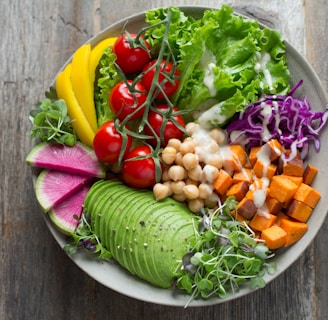EU Project Advocates for Widespread Adoption of Mediterranean Diet for a Healthy, Active Lifestyle
EU Project Advocates for Widespread Adoption of Mediterranean Diet for a Healthy, Active Lifestyle
NEWS


EU Project Advocates for Widespread Adoption of Mediterranean Diet for a Healthy, Active Lifestyle
A new initiative by the European Union aims to encourage the adoption of the Mediterranean diet as a pathway to promoting a healthy and active lifestyle. The Mediterranean diet is inspired by traditional eating habits prevalent in countries surrounding the Mediterranean Sea. It emphasizes the consumption of a variety of vegetables, fruits, legumes, nuts, beans, cereals, grains, fish, and unsaturated fats, while limiting the intake of meat and dairy products. Numerous studies have associated this diet with reduced risk of dementia, enhanced healthy aging, and improved bone health for individuals with osteoporosis.
Despite the benefits of the Mediterranean diet, many Mediterranean countries are increasingly consuming "ultra-processed" foods, which have been linked to adverse health outcomes. In some European Mediterranean countries, these highly processed foods contribute to more than 50% of nutrient intake.
Moreover, researchers have suggested a correlation between the adoption of "western diets" in Italy and the surge of obesity-related diseases.
Against this backdrop, the EU project seeks to promote the consumption of minimally processed and unprocessed foods over ultra-processed foods across eight countries. Given the extensive evidence linking the Mediterranean diet to positive health outcomes and its compatibility with low-processed eating patterns, which emphasize fruits, vegetables, whole grain products, and olive oil, it has been selected as the preferred dietary approach.
To promote the Mediterranean diet, researchers involved in the project will conduct online surveys to gain insights into the dietary habits of Euro-Mediterranean consumers. This information will inform the development of programs aimed at encouraging the adoption of the Mediterranean diet. These initiatives include social and physical exercise programs, dietary recommendations, cooking classes, collaborative games, awareness and motivation campaigns, creation of digital toolkits, development and testing of modern nutritional recipes with eco-friendly bio-packaging, and the establishment of a platform for consumer-producer interaction. Additionally, the project plans to create and test an intelligent lifestyle coach app called MEDIET4ALL.
The project also highlights the sustainability aspect of the Mediterranean diet, which can contribute to energy and water conservation, soil preservation, and reduction of greenhouse gas emissions. As a result, the initiative aligns with the EU's Farm to Fork strategy.
In addition to promoting the benefits of the Mediterranean diet, the project aims to raise awareness about the detrimental effects of consuming ultra-processed foods.
The project, spanning southern Europe and north Africa, brings together a diverse group of experts from various disciplines including sports science, computer science, dietetics, and packaging technology.
Academic institutions involved in the project include the University of Burgundy (France), the University of València (Spain), the University of Palermo (Italy), the University of Sfax (Tunisia), École Nationale d'Agriculture de Meknès and Faculté de Médecine et de Pharmacie de Rabat (Morocco), and the University of Boumerdes (Algeria). Non-academic partners, such as the Vitagora agri-food innovation cluster (France) and the training institute and social enterprise Microtarians (Luxembourg), also contribute to the project.
Dr. Achraf Ammar, the project lead, stated, "Our challenge is to create a transnational movement to promote the MEDIET culture and thereby support the transition toward healthy minimally processed food."
The tone of voice of the output is informative and objective. The output language is English.
